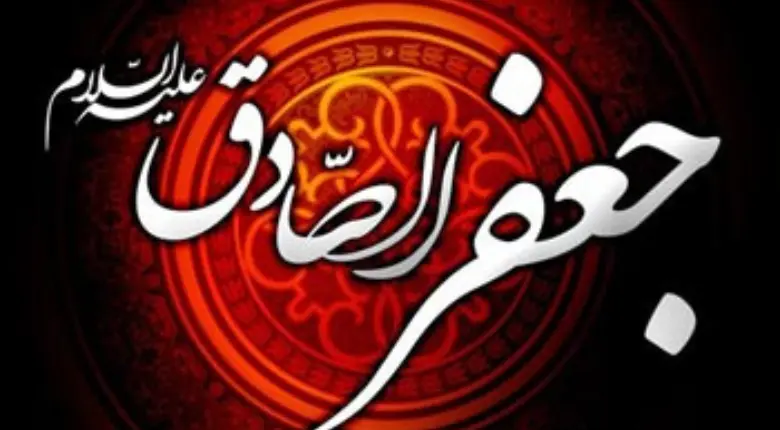The Scientific School of Imam Jaffar Sadiq(AS)

In this article you would know that How Imam Jaffar Sadiq (as) taught and how they looked for proof was different from how it is done in Islamic academic centres today. Instead, most of his students believed in his Imamate. As we’ve already said, Imam Jaffar Sadiq as think that the Imam Jaffar Sadiq as ‘s knowledge didn’t rely on his ideas and ijtihad (his ability to make a decision based on Islamic law).
So, the Imam Jaffar Sadiq as was asked what it meant. His wisdom came from his family and from God. He was sometimes asked why the rule was in place. Such questions were asked to learn and help, not to start a debate.
The people who weren’t Imamis learned from Imam Jaffar Sadiq because they believed in his greatness, excellence, and Imamate. They thought it was a good thing to learn from him. Ibin Abu al-Hadid said that he was the one who knew the four legal theories.
The person who asked the question went to Imam Jaffar Sadiq as to ask him about the hard things he had to deal with. Most of al-Sadiq’s students came with pieces of paper and ink pots so they could write down what he told them and give an accurate report.
If you want to know how knowledgeable Imam Jaffar Sadiq was, just think about how many people learned from him. There were more than four thousands of them. Why did they all report from al-Sadiq and not from any of the other teachers who lived at the same time?
Imam Jaffar Sadiq as, whose school this large number of people went to, didn’t teach these subjects to make a name for himself or to show off.
In the meantime, his students learned these subjects to help the Islamic Law and faith. Imam Jaffer al Sadiq kicked anyone out of his school who broke these rules.
What Imam Jaffar Sadiq Taught to His Students:
Imam Jaffer al Sadiq had a lot to teach, show, and tell. We will give them their own parts. Here are some teachings, lessons, and pieces of advice for those who want to learn.
Amru b. al-Muqdam said, “When I met him for the first time, Abu Abd Allah, peace be on him, told me, “Learn to be honest before you speak.”I (the author) say, how good this advice is!
Imam Jaffar Sadiq as told his followers to be honest and trustworthy. This is important for a person to be happy in this world, to be rich and well-known, and for people to believe him and let him judge them.
Imam Jaffar Sadiq as has many ways to gain knowledge. He, peace be on him, sometimes said, “I like to see the young men of you in one of two states: either a scholar or a student. If he doesn’t do these two things, he wastes his time. If he wastes his time, he loses. If he wastes his time, he sins.
Imam Jaffer al-Sadiq told his students, “Seek knowledge, and with it, dress yourselves in courtesy and respect.”(169) He also told them, “With knowledge, dress yourselves in courtesy and respect.”(When it came to humility, he said, “Be humble for him to whom you teach knowledge, and be humble for him from whom you seek knowledge. Don’t be haughty scholars, because your falsehood takes away your right.”
I (the author) say: This advice is spot on! And how much it costs to teach! This is because knowledge doesn’t help the person who has it or the people around them unless it comes with humility. This is true whether the person with knowledge is a teacher or a student. And people leave the proud guy, so pride takes away his right.Imam Jaffar Sadiq as , peace be on him, gave this advice to those who seek knowledge: “And don’t seek knowledge for three things: to lie, to brag, and to fight.
And don’t look for it for three things: to seek ignorance, to avoid knowledge, or to feel ashamed of people. Knowledge that has been kept is like a lamp.
I (the author) say that Imam Jaffar Sadiq, peace be on him, did want to learn for his own sake and for the good of the country. If someone wants to learn something just to lie, brag, or argue, he won’t help himself or other people. He will hurt himself and other people instead.
And if a person gives up information for stupidity and avoids learning, he will show how stupid he is. Also, there’s no point in shame, which leads to bad things and keeps you from doing good things. And people don’t use what they know unless they hear about it.
Because information is so valuable, Imam Jaffar Sadiq told people they should find it no matter what. He said about this, “Seek understanding even if you have to give up your hearts and go to the bottom of the sea.”
Since people can get information from different places, Imam Jaffar Sadiq as stopped his students from getting it from the wrong places. He, peace be on him, said, “Seek knowledge from the source of knowledge, and beware of those who get in the way of knowledge, because they keep you from Allah.”
I (the author) say, “We can see for ourselves that the learner takes on his teacher’s ideas.” So, if the teacher goes against what is right, he will surely lead his students astray. And if the master is righteous, he will lead his student to upright living. This is because the student naturally wants to be like his master.
Imam Jaffar Sadiq told His students not only to seek knowledge, but also to use it. He said, “Learn whatever you want about knowledge. Allah does not give you knowledge unless you use it, because the concern of scholars is to protect knowledge, while the concern of fools is to report it.” He also said, “Knowledge that isn’t used is like a treasure that isn’t spent. (The person) makes himself a fool.”
“A person who knows what is good but doesn’t do it is like a lamp that gives light to others while it burns itself.”
Imam Jaffar Sadiq said, “If the expert doesn’t use what he knows, his words fall from the heart like rain falls from a rock.”
Imam Jaffer al Sadiq taught his children how to remember what they were learning. He, peace be on him, said, “Write down what you learn because you won’t remember it if you don’t.”
A few of the things he told al-Mufaddal b. “Amr” means, “Write and share what you know with your brothers. If you are about to die, give your books to your children, because there will come a time when they won’t want to be with anything but their books.”
He told them, “Keep your books, because you’ll need them.” Imam Jaffar Sadiq, peace be on him, didn’t want the benefits of information to be limited to people living in his time. Instead, he wanted it to last for all time and all people. He also told his kids to add all values to what they already knew. You will know this from what he tells you to do. Also, you’ll know this from what he said:
“It will be said that a person is Jafari if he is pious in his religion, honest in his speech, pays his debts, and treats other people well. These are the things that make me happy, and anything else makes me unhappy. And it will be said that these are Jafars manners.”
In fact, Imam Jaffar Sadiq, his grandfathers, and his children did everything they could to encourage the Muslim people to do good things and stop them from doing bad things. But people didn’t want to do what was right.
Imam Jaffar Sadiq told Muslims that they should help and care for teachers. So, he, peace be on him, said,
“Surely, I have mercy on three (people), and people should have mercy on them: the dear (person) whom humiliation has hit, the rich (person) whom need has hit, and the scholar whom his people and the ignorant have scorned.”
Imam Jaffar Sadiq, peace be on him, said, “Three (people) cry to Allah, the Great and Almighty: the empty mosque where no one prays, the teacher among the ignorant, and the hanging Koran with dust on it that no one reads.”
Ishaq b. “I said to al- Sadiq, peace be on him, ‘What about standing up for the man?’ He, peace be on him, said, ‘It is wrong except for the man in the religion.’ And he, peace be on him, said, ‘Whoever respects a Muslim jurist, Allah will be pleased with him on the Day of Judgement, and whoever insults a Muslim jurist, Allah will be angry with him on the Day of Judgement
Imam Jaffar Sadiq as taught the History:
Over 4,000 people said that Imam Jaffar Sadiq, peace be on him, told them stories. Writing down customs happened before him, and it happened a lot more during his time. And the stories that were told about him were about all kinds of science.
The Shi’a learned teachings from Imam Jaffar Sadiq, just like those who learned them from the Prophet of Prophets, may Allah bless him and his family. That’s because the Shi’a thought that Imam Jaffar Sadiq didn’t start those practices. Instead, they were said by the Prophet. Because of this, the Shi’a learned them from him without question or doubt. They also asked him about everything they needed to know. So, his customs are said to have everything.
If there were more than 4,000 writers, then how many customs would there be? Biographers say that Aban b. Taghlub told thirty thousand stories about him, and Mohammed b. Muslim told sixteen thousand stories about him, al- Baqir told thirty thousand stories, and Jabir al- Ju’fy told many stories about al- Sadiq. So, can you count the practises that he said were true? Some of these customs have been forgotten, and others have been lost. Still, there are a lot of stories that al-Sadiq told and that people believed.
I took some of the stories from the four books Al- Kafi, Man La Yahdarahu Al- Faqih, Al-Tahdhib, and Al- Istibsar that al- Sadiq, his grandfathers, and his children said they heard. These customs are only about morals, rules, and good manners. Then, Mulla Muhsin al-Fayd al-Kashani put them all together in a book called Al-Kafi.
Al- Hur al- ‘Amily (184), who was looking for good books about Islamic rules, found some. He added what was in them to what was in the other four books. So, he wrote a book called “Tafsil Wasai’l Al-Shi’a” about how to understand it. So, he has said that eighty of al-Sadiq’s standard books have no evidence and seventy of them have evidence.
Lastly, al-‘Allama al-Nury Mirza Husayn(185) read a lot of books. He thought they were good for putting out Islamic laws. So, he wrote his book, which is called Mustadrak Al-Wasa’il.
The above books have been changed to fit the rules of Islam. Except for al-Kafi, none of the four books talk about ethics and manners. Most of the stories in these books are said to have come from al-Sadiq, peace be on him. And you would get tired of counting if you tried to count the books that al-Sadiq, his grandfathers, and his children said were true. Shaykh al-Saduq Mohammed b. ‘Ali b. Babawayh has written a lot of books about the history of the ahl al Bayt.
Al-Majlisy’s book Bihar Al-Anwar is a collection of the many stories of the Ahle Bait.
Even though this book has both strong and weak traditions, like other big books, you’ll find a lot of them when you read a few volumes. (186) It’s strange that this big book doesn’t have all the traditions of ahl al- Bayt. So, the great scholar Mirza Mohammed al- Tehrani put together a book called “Mustdrak al-Bihar” that has many traditions of ahle Bait.
Imam Jaffar Sadiq, peace be on him, told his friends to tell others about the story. In relation to this, he told Mu’aawiya b. Wahab, who wrote down the story, said, “Whoever knows about religion is better than a thousand followers who don’t know anything and can’t tell you anything.”
I (the author) say, “I don’t think you’re surprised by this choice, because Allah, the Most High, wants His followers to help each other and change each other.” The person who worships is good. And the conservative who knows a lot is a good progressive.
Islamic Jurisprudence and Imam Jaffar Sadiq :
Fiqh, or Islamic law, is the understanding of rules from tahara (ritual cleanliness) to diya (blood money), and everything in between. The four proofs show that these rules are true. The Sunna is the most important of these four findings.
The Sunna is just the way the Prophet and the people in his family did things. Obviously, this is how Shi’ites describe the Sunna. The Shi’ite legal books, then, are based on these four proofs. Imam Jaffar Sadiq as knew more about customs than any of the House members. So, the customs he left behind helped Muslim experts figure out most of the rules of Islam.
Not only did Imam Jaffar Sadiq as influence Shi’ite law, but many Sunni lawyers who lived during His time also learned law from him. Malik, Abu Hanifa, the two Sufyanis, Ayyub, and others were among them. In addition, in Sharh Nahjul Balagha, vol. 1, p. 6, b. Abu al-Hadeed says that al- Sadiq was the one who came up with the four theories of law.
And in his book ‘Mukhtasar Al- Tuhfa Al- Ithna ‘Ashariya, p.8, al- Alusy says: “And this is Abu Hanifa, who was among the Sunnis, boasted and said with the most eloquent tongue: ‘Were it not for the two years, al-Nu’man (Abu Hanifa) would have perished.’ He meant the two years which he (Abu- Hanifa) spent to learn jurisprudence from Imam Ja’far al- Sadiq, peace be on him.”
Because of this, it made sense for Abu Abd Allah, peace be on him, to be the only source of Islamic law. Many stories and writers explain why he knows so much law. And anyone who reads the tradition books carefully will learn about al-Sadiq’s many customs and reporters.
During al-Sadiq’s reign, a lot of wise people lived. But there were not many of them. And none of them knew as much about law and justice as Imam Jaffar Sadiq did. So,Imam Jaffer al Sadiq was ready for any question.
Fiqh, which is another word for law, is the basic rule for men. Without it, no one would know about religion. From here,Imam Jaffar Sadiq as told his people to learn as much as they could about faith. He, peace be on him, said, “The teaching about what is right and wrong that you learn from a true person is better than this world and the gold and silver in it.”
Also, Imam Jaffar Sadiq as, peace be on him, said, “Seeking your life in this world shouldn’t keep you from seeking your faith, because the person who wants life in this world may get it or it may get away from him, so he will die by what has gotten away from him (life).”
Imam Jaffar Sadiq as told his companions, “Would that the whips were over the heads of my friends so they would deeply understand what is right and wrong!”
Imam Jaffar Sadiq as, peace be on him, said, “Study religion deeply, because whoever doesn’t study religion deeply is a nomad.”
Imam Jaffar Sadiq as was asked about the word “hikma,” which means “wisdom,” in Allah’s words, “And whoever is given wisdom is indeed given a great good.” (189). Al-Sadiq replied, “In fact, wisdom is knowledge and a deep understanding of religion.”
Al-Sadiq thought that a jurisprudent was someone who knew a lot about the past. So, he, peace be on him, said, “Know the position of our Shi’a (followers) through their good news from us, because we don’t think of their jurist as a jurist unless he becomes a conservative.” (191)
The knowledge of Ethics and Imam Jaffar Sadiq (as)
At first, there was no way to group ethics. Instead, ethics came from the verses of the Holy Koran, the customs of the Chief of the prophets and guardians of authority, and their wise children, peace be on them. In the last years of the second century (A.H.), the Shi’a started writing books about ethics. During that time, Ismail b. Mahran b. Abu Nasir al- Suküny, a trusted writer and friend of al- Rida (peace be on him), wrote a book about ethics. The book is called “Sifat Al- Mu’min wa Al- Fajir” by him.
In the third century A.H., many important people wrote books about morality. They included Abu Ja’far b. Mohammed b. Khalid al- Barquqy. He was one of the people you could trust. His father Mohammed was one of al-Rida’s (peace be on him) close friends and trusted reporters. One of the best books was the book of Abu Ja’far. He died in the year 273 or 280 (A.H.) in the city of Qum.
And al- Hasan b. ‘Ali b. Shu’ba has written a good book about right and wrong. The title of the book is “Tuhaf al-‘Uqul.” The book has wise sayings, sermons, and ideas about right and wrong. Then there was more writing about ethics. So, the trustworthy person in Islam al-Kulainy, may his grave be pleasant, spent many years writing a book about ethics.
He picked the best ways to do things in this area. He finally wrote the best book about ethics. He called the book “al-Kafi.” If you read it, you’ll learn about Islamic ethics and what al-Sadiq and ahl al Bayt knew about this subject.
Also, if you read this book closely, you will know that it is the best source for ethics after the Holy Book (Quran) and that it contains the words of the very polite Prophet and the words of those who got all their knowledge and morals from him. You will know this is true when you read al-Sadiq’s (peace be on him) chosen words in this book.
The teachings of Imam Jaffar Sadiq (as) on Exegesis
There are a lot of places to look for interpretation in the words we’ve already talked about when it comes to ahle Bait. Some people who try to understand the Holy Quran have mostly relied on customs. If you want to know how to interpretImam Jaffar Sadiq’s (peace be on him) words, read the book “Majma’ Al- Bayan.” This book talks about some of al-Sadiq’s customs and ahl al Bayt’s thoughts about exegesis.
There are also a number of books about the rules of lyrics. The writers have said what they think about them by referring to ahle Bait’s customs. When we read stories like, “I’m going to leave you al-Saqlain, the Book of Allah, and my family, the people of my House,” we can see how much ahle Bait knew about the Quran.
If you hold on to them, you’ll never get lost looking for me, because they won’t leave each other until they reach me at the hawd (the river in paradise).Imam Jaffar Sadiq himself said, “By Allah, I know the Book of Allah from the beginning to the end as if it were on the palm of my hand. It has the news of the sky and the earth, the news of what has happened and what will happen. Allah, the Great and Almighty, said that in it (the Quran), “There is an explanation for everything.” Imam Jaffar Sadiq also said, “By Allah, we all know the Book.”
As the tradition of al-Saqlain shows, an expert on the Quran should be around at all times. This is because the Quran is a silent Imam. It has verses that are clear and verses that are hard to understand. It has verses that change and verses that don’t change. It has verses that are public and verses that are private. It has verses that are unlimited and verses that are limited. It also has verses that people don’t understand.
Every Muslim sect says that the Quran is the source of its beliefs and that it understands its meanings and goals. Each sect also has proof for this. The followers of these sects say that the Quran is the source of their differences. Who is the final judge whose words can answer the claims of these sects?
So, Imam Jaffar Sadiq, peace be on him, was the master of the Koran during his time. No one can say that anyone else in the ahl al Bayt knew more about the Koran and other studies than Imam Jaffer al Sadiq during his time.
Theology and Imam Jaffar Sadiq (as)
Theology is the science that studies the presence of Allah, the fact that He is one, and His traits, as well as the Prophet hood, the Imamate, and the return. All of these things are studied using rational proofs based on the right rules of logic.
Theology is not an argument in which people lose their way because they rely on illogical ideas. Some people use illogical ideas to beat their opponents in debates. They don’t rely on solid proof or get their information from where it came from.
Some traditions look down on theologians, but they don’t mean all of them. Instead, they mean those who learn debate to brag and win, who don’t learn knowledge from its source, and who don’t care about the corrupt results of their debates. On the other hand, these traditions look up to those who learn knowledge from its source and build it on strong foundations.
Traditions also say that they are the voices and guides of the truth, and that they lead and spread religion.
Amir al- Mu’minin (Imam ‘Ali), peace be on him, was the first person to give logical and physical proof that Allah existed. Those who didn’t know or didn’t care about Abu al- Hasan’s knowledge about Allah were about to doubt his speeches about the above-mentioned things, saying that people didn’t know how to prove such things at the time. But they forgot that Imam ‘Ali learned his knowledge directly from the Holy Prophet (pbuh).
The children of Imam ‘Ali (as) all knew the same amount about the existence of Allah, so they taught people what they wanted to know about it. This is because it doesn’t make sense for people to worship a God they don’t know, obey a prophet they don’t know, or follow an Imam Jaffar Sadiq whose role they don’t understand well. So, to know Allah is the first and best science. Imam Jaffar Sadiq as, peace be upon him, said, “Knowing Allah is the best
People may use Quranic verses and traditions as proof that Allah exists, but these verses and traditions tell people to use their minds or follow their instincts. For example, this verse:
“Is there any question about Allah, the Creator of the sky and the earth? “This verse doesn’t force you to believe in Allah. Instead, it shows you that Allah exists by pointing out his creations, like the sky and the earth. ”
When the Holy Prophet (pbuh) and His family gave proof for these basic beliefs, they told people to use their minds to decide. Imam Jaffar Sadiq as , peace be upon him, said this about this: “Intellect is the guide of the believer. Humans are built on their minds. “Whoever doesn’t think won’t get anywhere.”
If you read what al-Kazim, peace be on him, told Hisham b. al-Hakam about intellect and the wise, you’ll know that ahle Bait knew the truth about intellect and led and pushed people to use its light.
Ahle Bait gave a lot of proof for these basic beliefs, such as that Allah exists, that He is One, etc.
Books like “Nahj al Balagha” by Imam ‘Ali, “Al- Ihtijaj” by al- Tubrisy, “Isul al- Kafi,” “Al- Tawhid” by al- Saduq, the first and second volumes of “al-Bihar,” and so on, may have such proof.
Refrences
Tahdhib Al- Asma’ wa Al- Lughat. Yanabi’ Al- Mawada.
Matalib Al- Sa’ul.
Sharh Nahj Al- Balagha.
We’ll talk about him along with his well-known writers.
Al- Kafi.
Shaykh al- Saduq, al- Majalis, Majlis no. 11.
Al- Kafi: 1/36/1.
Shaykh al- Saduq, Majlis no. 17, Bihar Al- Anwar 2/41/2.
Al- Kafi: 1/35/5.
Bihar Al- Anwar: 17/270.
Ibid: 2/37/55.Ibid: 2/38/56.
Ibid: 2/39/68.
Al- Kafi: 1/52/9.
Ibid: 1/52/11.
Ibid: 2/636.
Al- Saduq, al- Khisal, 87.
Bihar Al- Anwar: 92/195.
Bihar Al- Anwar: 47/44/13.. He has a lot of important books. Some of them are Al- Wafi, Al- Safi, Al- Shafi, Al- Mahjja al-Bayda” Al- Haqa’iq, Mafatih Al- Sharai’, ‘Ilm al- Yaqeen, and others.
…, etc. In the year 1091, he died.
He was called Mohammed b. al- Husayn b. Ali al-Hur al-Family. Al-Wasa’il, the book he wrote, is the best book on how to group things. On Rajab 15, 1082 A.D., he finished the book. H. He has written another book called Amal Al-amal. He was born in the village of Mashghara on Jabal ‘Amil on Rajab 8, 1033 A.H. In the year 1104 A.H., on the 21st of Ramadan, he died in Kurasan.
He was the spiritual leader of Islam. He was Shaykh Mohammed Baqir b. Shaykh Mohammed Taqy al-Majlisy, may his grave smell nice. During the time of King Husayn al-Safawy, he was a powerful person. A thousand people went to his religious centre. He has written other great books besides Bihar Al- Anwar. In the year 1037, he was born. He died in 1110 or 1111 A.H. in Asfahan. people go there to see his grave.
It looks like his name was al- Bajali al- Kufi. He was a great person you could trust. He told stories that al- Sadiq and al- Kazim, peace be on them, said were true. He was reading. The book has been told by a group of important people.




